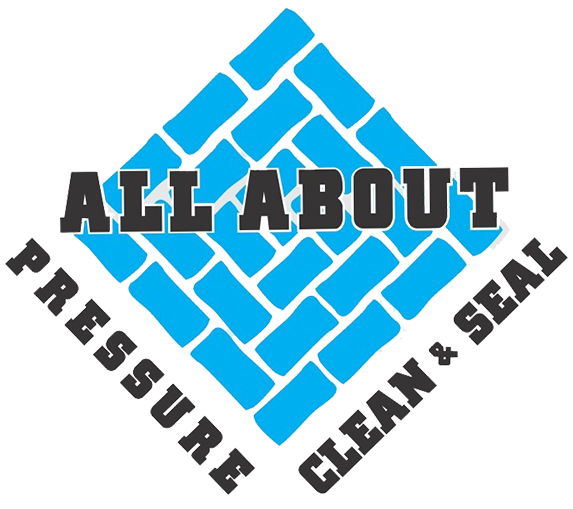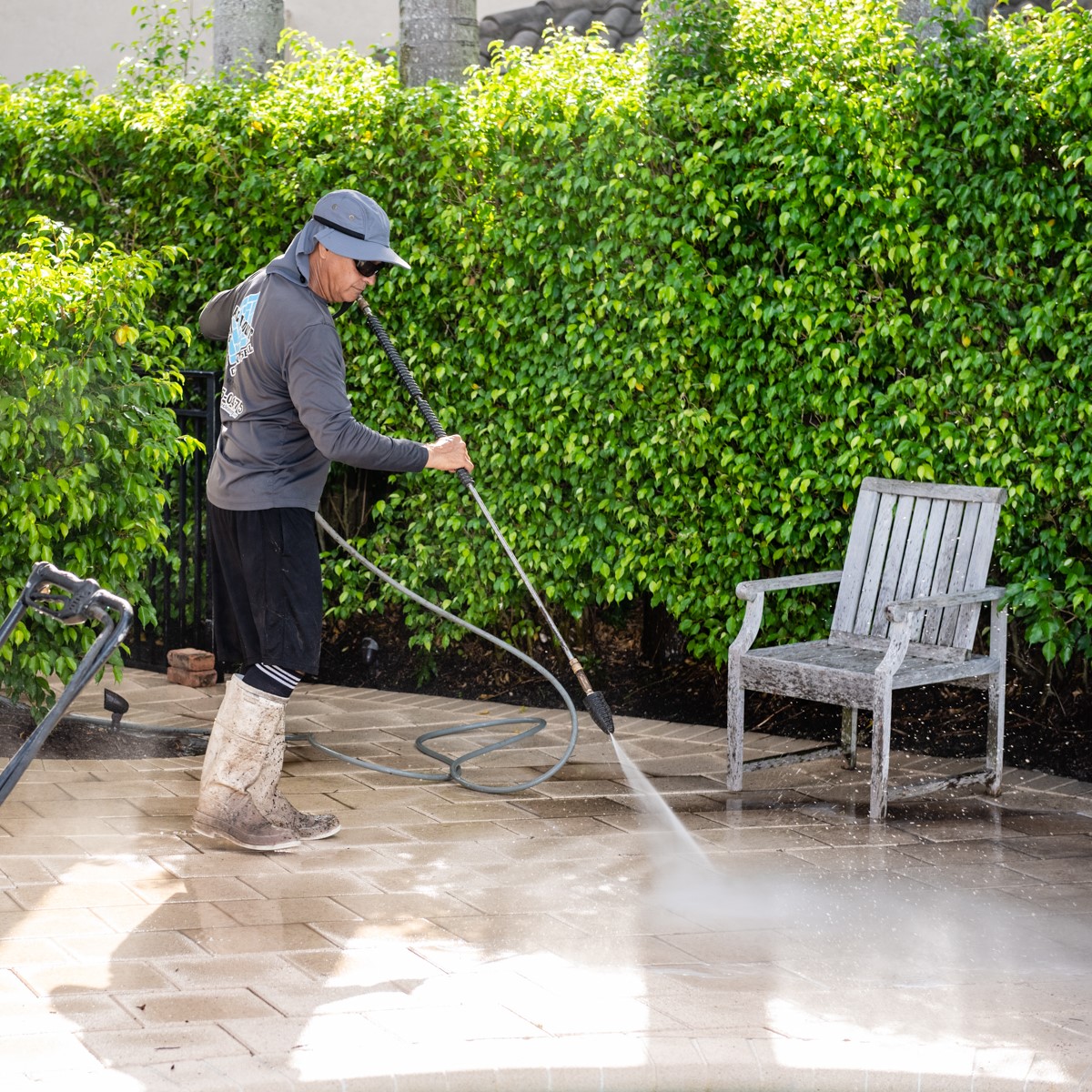If Florida’s humidity had a personality, it’d be that clingy neighbour who never knows when to leave. Throw in heavy rain, intense sun, and hurricane season, and it’s no wonder your pavers start looking worn out fast. Whether it’s your pool deck, patio, or driveway, that Florida weather takes a toll.
I’ve been pressure cleaning and sealing pavers across South Florida for over 17 years. Let me tell you — sealing your pavers here isn’t just a nice-to-have. It’s essential if you want them to hold up and look great. Let’s break down what you really need to know: when to seal, why it matters, and how to make sure your surfaces stay in top shape.
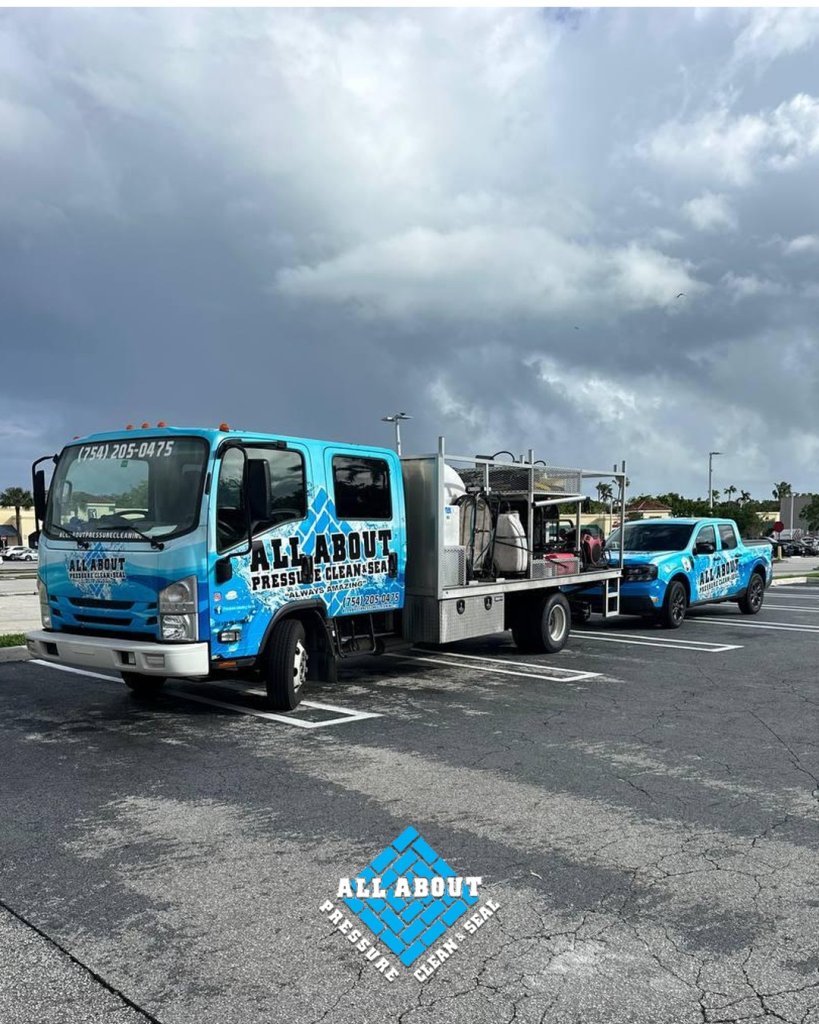
Why Paver Sealing Matters in Florida
Florida weather is no friend to outdoor surfaces. The combination of UV rays, moisture, and algae-prone conditions makes paver sealing more than just a good idea — it’s basic maintenance for anyone who wants to avoid early replacements.
Here’s what sealing your pavers actually does:
- Protects Against Fading: UV exposure can cause brick and stone pavers to fade fast.
- Prevents Mold and Algae Growth: Sealer creates a barrier that helps block moisture buildup.
- Minimizes Stains: Oil, rust, and leaf stains are easier to clean off sealed surfaces.
- Stabilizes Joint Sand: Helps keep the pavers in place by locking in the sand between them.
- Improves Appearance: A sealed surface usually has enhanced color and a clean finish.
Without sealing, pavers in Florida start to degrade quickly — especially in shaded, moist areas where mold and mildew love to grow.
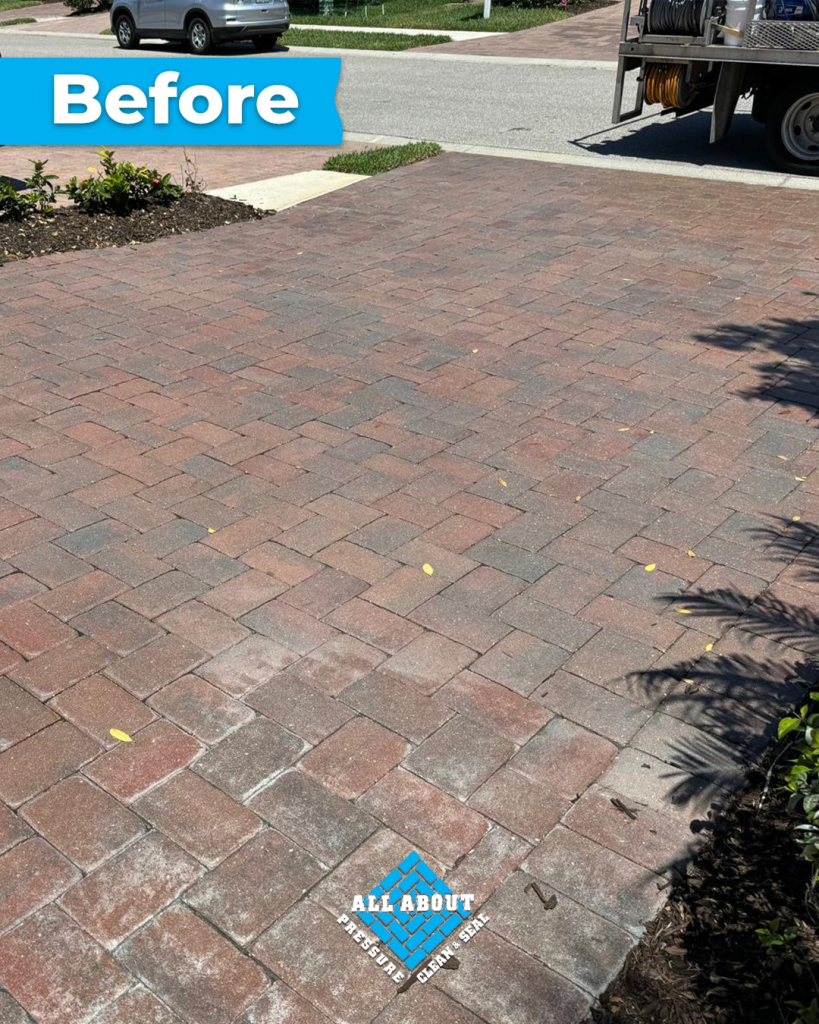
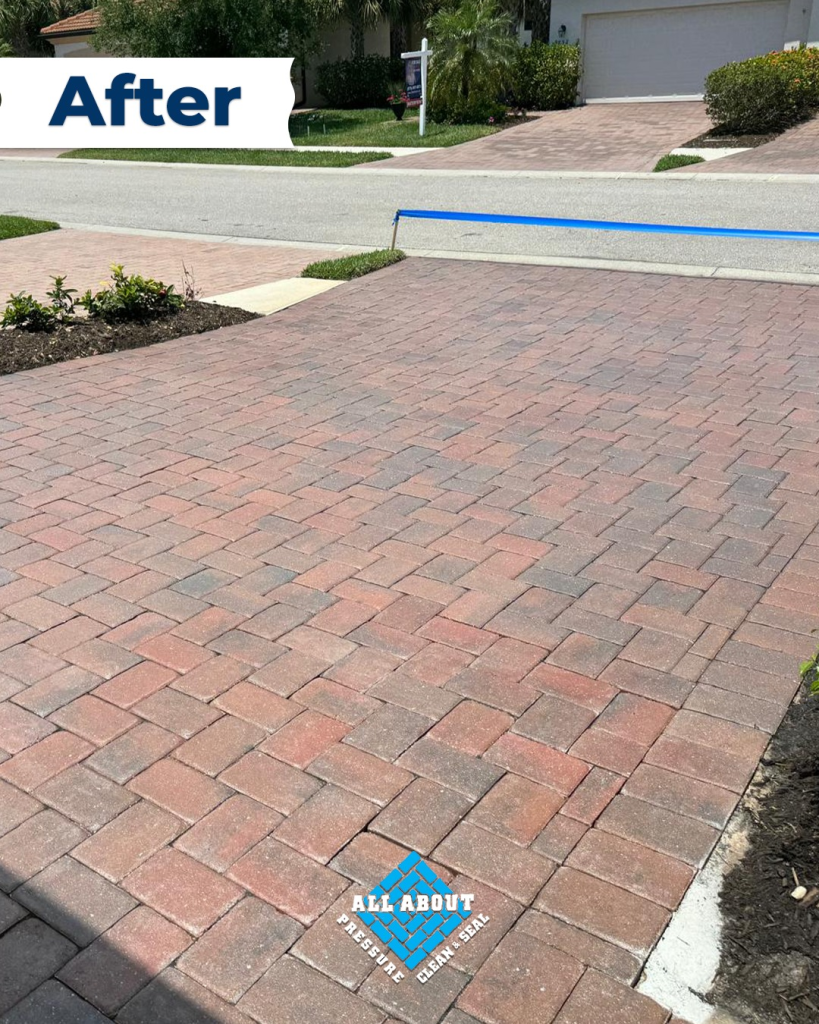
How Often Should You Seal Your Pavers in Florida?
So, let’s get to the main question: how often should you seal your pavers if you live in Florida? The short answer: every 2 to 3 years. But that’s not a one-size-fits-all recommendation. The real answer depends on a few local and material-specific factors.
Here’s what influences the sealing schedule:
- Exposure to Sunlight: Full-sun driveways may need more frequent sealing to prevent fading.
- Shaded or Moist Areas: These areas promote mildew and algae and may need annual attention.
- Traffic Load: High-traffic zones like driveways or commercial walkways wear down faster.
- Type of Paver Material: Brick may need sealing more often than concrete or natural stone.
- Sealer Type Used: Some sealers last longer than others. Water-based sealers typically need reapplication sooner than solvent-based ones.
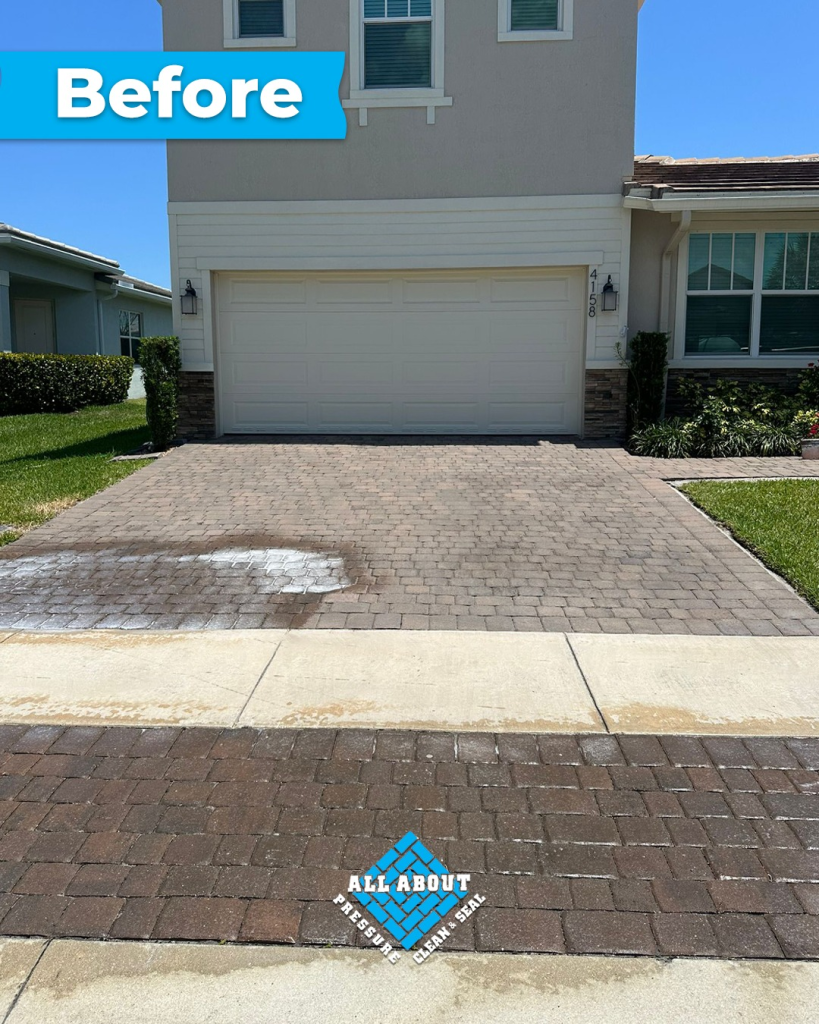
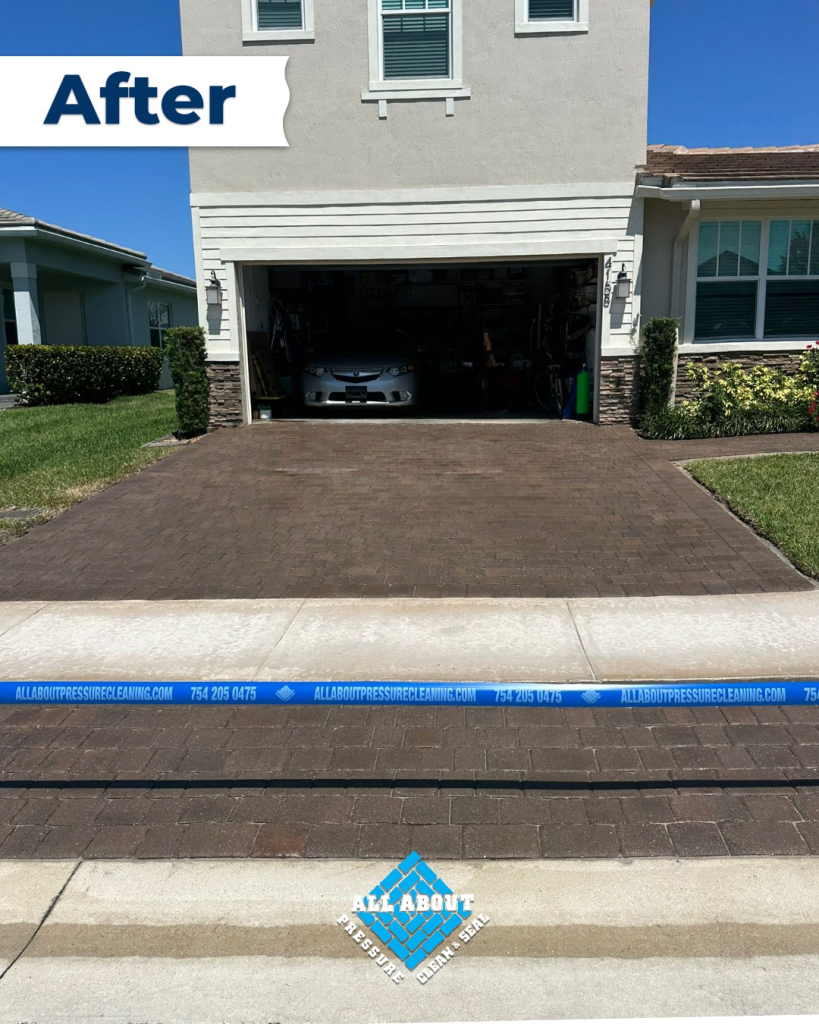
General Timeline
- Brick Pavers: Every 1-2 years
- Concrete Pavers: Every 2-3 years
- Natural Stone (Travertine, etc.): Every 2-4 years
Always keep an eye out for fading color, dull finish, or eroded joint sand — these are signs it’s time to reseal.
What Time of Year Is Best for Paver Sealing in Florida?
This is a common question we get from homeowners and property managers alike. Florida’s tropical weather can be tricky, so timing is key to getting a long-lasting seal.
- Fall and Early Winter: Cooler temperatures and less rain make this the ideal sealing season.
- Avoid Summer Storms: Afternoon showers and high humidity can cause curing problems.
- Watch for Dry Weather Windows: A clean, dry surface is essential for good adhesion.
If you’re unsure, ask your sealing contractor for a local forecast window before booking. At All About Pressure Clean & Seal, we monitor weather closely before every job.
I remember working with JRS Distribution. Emmanuel took care of the pressure washing and sealing, using a pigmented, penetrating sealer that really brought their old pavers back to life.

They also had a tree root lifting part of the driveway. We pulled up the pavers, removed the root, and reset everything the right way — no shortcuts.

Later on, they mentioned wanting to reseal their travertine pavers and get their windows cleaned. It’s always a good feeling when a customer trusts you enough to call you back for more work.

Tips to Get the Most Out of Your Paver Sealing
A good sealing job should last a couple of years, but only if the prep work and conditions are right. Here are some practical tips to help you get more mileage out of your sealing investment:
- Clean Thoroughly Before Sealing: Pressure wash the surface to remove dirt, mold, and stains.
- Let It Dry Completely: Sealer won’t bond properly if moisture is still trapped in the pavers.
- Pick the Right Sealer: Choose a sealer based on the type of paver and desired finish (matte, wet look, etc.).
- Avoid Sealing in Rainy Weather: Florida storms can ruin a fresh seal.
- Watch for Overapplication: Too much sealer can leave pavers sticky or cloudy.
Quick Test You Can Do at Home: Sprinkle water on your pavers. If it soaks in quickly instead of beading up, it’s probably time to reseal.
Paver sealing in Florida isn’t just maintenance—it’s protection against everything the climate throws at your property. Keeping a proper schedule not only keeps your outdoor areas looking great, but also prevents costly repairs down the line.
Still not sure if it’s time to reseal? Text a photo of your pavers to our team at (754) 205-0475 and we’ll give you a free assessment.
Or request a detailed quote and see real before-and-after results from other Florida homeowners like you.
